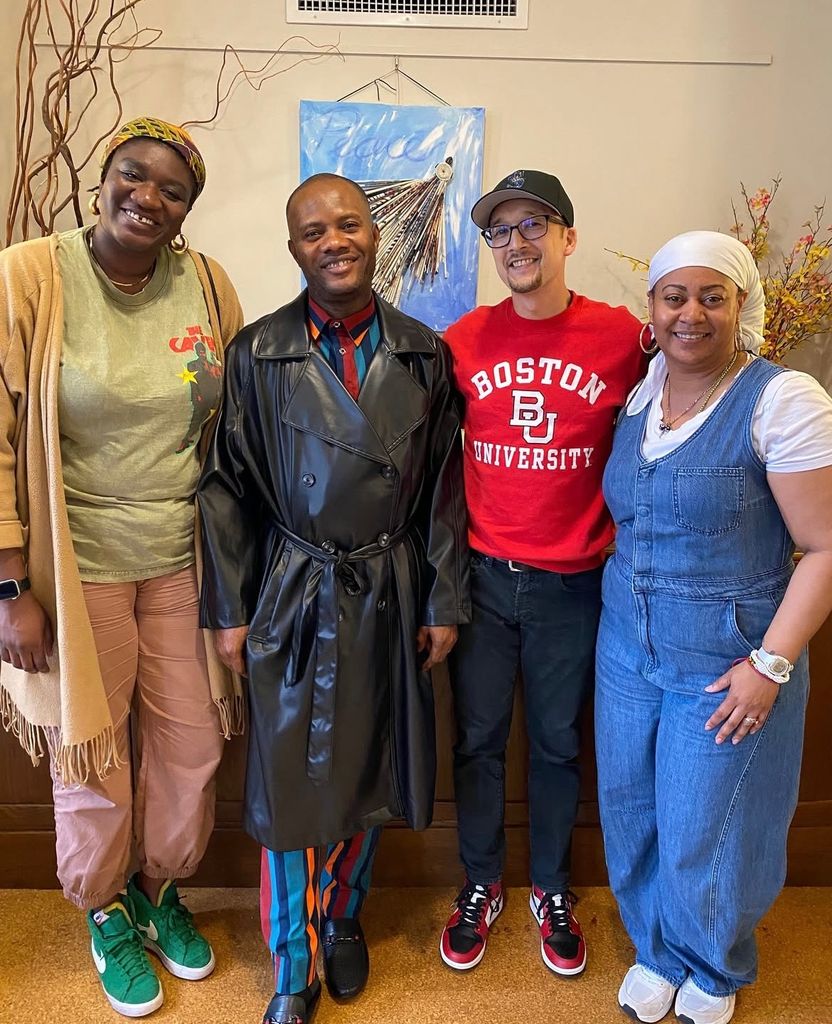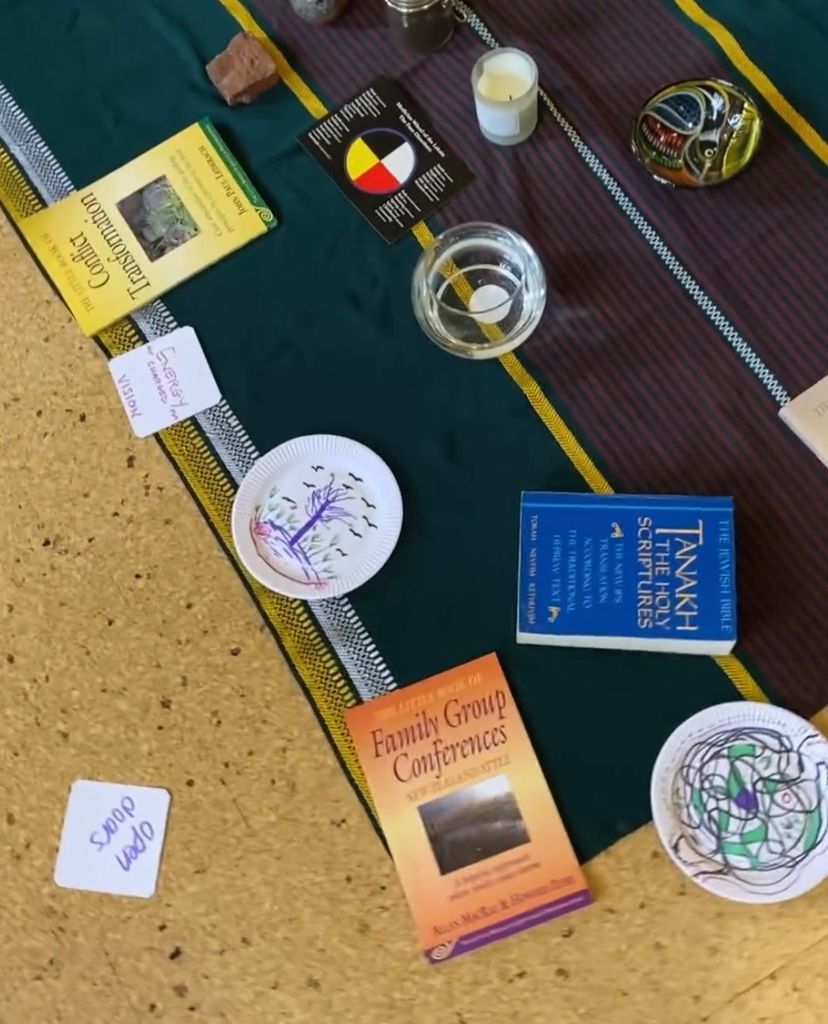Peacemaking and Prophetic Action: Development of BUSTH’s Inaugural Circle Keeping Program
By Kendall Doty (’25)

During the 2024-2025 school year, Boston University School of Theology (STH) launched a new contextual education internship program offering students the opportunity to practice circle keeping. Under the direction of Clinical Assistant Professor of Religion and Conflict Transformation and Director of the Tom Porter Religion and Conflict Transformation Program James McCarty, three students—Daniela Harrigan (‘26), Dzidzor Azaglo (‘25), and Mustard Uzu (‘25)—kept bi-weekly peacemaking circles throughout the semester and planned a two-day conflict transformation retreat which took place in late April.
Bringing their own skills and backgrounds, these three interns were able to integrate the arts and African diasporic wisdoms into the indigenous practice of peacemaking circles. However, this program of prophetic action did not appear out of the blue; it is the result of over three years of moral formation and organization within the STH community.
Prof. McCarty’s work—which is centered around the intersections of restorative justice, community organizing, conflict transformation, and Christian ethics—informed how he implemented this program. He utilized a “scaffolded” strategy of learning experiences and implementation which “made the [STH] community ready for this more intensive and in-depth student-led use of the practice.” By teaching two-week units of peacemaking circles in his classes The Spirit and Art of Conflict Transformation and The Principles and Practices of Restorative Justice, Prof. McCarty introduced the practice to approximately 30-40 students each year. Before launching the intern program, Prof. McCarty himself served as circle keeper for two years, helping this community in moments of internal conflict such as the aftermath of October 7, 2023 and the ongoing genocide in Palestine, and the BU graduate workers union strike. After the STH community was introduced to circle processes, Prof. McCarty added an advanced summer school course on Peacemaking Circles which provided the pool of students from which the contextual education interns were selected.
Prof. McCarty explained that members of the community were seeking “values-based mediations and restorative processes” rather than relying on more conventional interventions. He noted a strong desire within the community to embody the principles they advocate—namely, being a beloved community and actively pursuing justpeace. Additionally, he observed that students were lacking opportunities for hands-on experience in conflict transformation and emphasized that even the most innovative classroom settings cannot fully convey “the kind of peace and justice leadership” that is best developed through lived practice.
“Building community is essential as the foundation for any conflict resolution framework.” – Daniela Harrigan (’26)
 Part of the inaugural team of circle keepers, Master of Divinity student Daniela Harrigan claimed that this internship allowed her to “further explore my passion for conflict transformation.” She learned about the behind-the-scenes preparation work that goes into peacemaking circles as well as how this work affects the body; “[it is] crucial to accurately identify and name what you’re feeling, because if you don’t, you may unknowingly carry those emotions with you […] and it is vital to release what isn’t yours to carry.” Additionally, she emerged from this program with the insights that “this work is not just a skill, it is a way of life” and that “building community is essential as the foundation for any conflict resolution framework.”
Part of the inaugural team of circle keepers, Master of Divinity student Daniela Harrigan claimed that this internship allowed her to “further explore my passion for conflict transformation.” She learned about the behind-the-scenes preparation work that goes into peacemaking circles as well as how this work affects the body; “[it is] crucial to accurately identify and name what you’re feeling, because if you don’t, you may unknowingly carry those emotions with you […] and it is vital to release what isn’t yours to carry.” Additionally, she emerged from this program with the insights that “this work is not just a skill, it is a way of life” and that “building community is essential as the foundation for any conflict resolution framework.”
This new program provides students with an accessible contextual education placement located on campus and an experiential learning opportunity in conflict transformation which is unique to STH. Yet, the most important aspect of the program to Prof. McCarty is that it is “a space in which students can build a community rooted in shared values and practices of mutual care, respect, and justice.” Similarly, Daniela shared that this program is important because “it offers a model for how we can be with one another—choosing not to assimilate into the dominant culture, but instead creating an intercultural space where we honor and value one another.” For both of them, the program is more than an opportunity—it is a way of being in community that embodies the values of STH.
As new sets of student circle keepers participate in the intern program in the coming years, Prof. McCarty anticipates that their individual interests, passions, and skills will continue to shape it. Although the program is currently in a pilot phase, Prof. McCarty hopes that the peacemaking circle program will become “steeped into the culture of STH” and that it will attract enduring funding so that students may participate for many years to come.
Land acknowledgement: We acknowledge that the territory on which Boston University stands is that of The Wampanoag and The Massachusett People. We also acknowledge the Tagish and Tlingit who have taught peacemaking circles to those outside their communities. Our classrooms and the BU campus are places to honor and respect the history and continued efforts of the Native and Indigenous community leaders which make up Eastern Massachusetts and the surrounding region.
